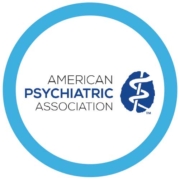The Prodromal Stage of Schizophrenia
Schizophrenia is a mental health disorder characterized by continuous or relapsing episodes of psychosis. “When schizophrenia is active, symptoms can include delusions, hallucinations, disorganized speech, trouble with thinking, and lack of motivation,” according to the American Psychiatric Association. “With treatment, most symptoms of schizophrenia will greatly improve and the likelihood of a recurrence can be diminished.”
As the late Colorado Recovery founder Richard Warner made clear in The Environment of Schizophrenia, the popular view that “schizophrenia has a progressive and downhill course with universally poor outcome is a myth. Over the course of months or years, about 20 to 25 percent of people with schizophrenia recover completely from the illness—all their psychotic symptoms disappear and they return to their previous level of functioning.”
As Dr. Warner explained, there is wide variation in the course of schizophrenia. In some cases the onset is gradual, “extending over the course of months or years; in others it can begin suddenly, within hours or days. Some people have episodes of illness lasting weeks or months with full remission of symptoms between each episode; others have a fluctuating course in which symptoms are continuous; others again have very little variation in their symptoms of illness over the course of years.”
Schizophrenia symptoms often only emerge well into adulthood, typically from the late teens to early 40s. The actual onset of psychosis is frequently preceded by a prodromal stage, wrote Michelle Pugle in a recent article on Verywellhealth.com, “where people (often still in adolescence) begin experiencing pre-psychotic mild or moderate disturbances in everyday functioning, including speech and movement difficulties. These changes can be attributed to heredity, genetic, environmental, and other causes.”
“Psychosis is preceded by a 3–4-year prodromal phase characterized by non-specific symptoms and deficits in approximately 75 percent of patients with a first episode of psychosis (FEP),” according to Michael First, Professor of Clinical Psychiatry at Columbia University in New York.
Since the prodromal phase is the earliest phase and schizophrenia symptoms are absent, it’s commonly diagnosed only after a person has entered the active phase of the disorder.
“Prodromal symptoms are generally seen as unspecific symptoms of schizophrenia (those involving an absence of normal interactions and functioning) that evolve over time,” wrote Pugle. “They can fluctuate in intensity, severity, and length of time. Such symptoms can begin in adolescence and the teenage years, although they aren’t likely to be seen as such unless a future diagnosis of schizophrenia is made later in life (a retrospective diagnosis).”
Early indicators are easy to miss. Small changes to personality and behavior or normal routine could be some of the first signs of prodromal phase schizophrenia. As we reported on this blog, researchers recently found new clues in young adults that could help predict the severity of symptoms later in life. According to their study published in the Journal of Abnormal Psychology, “Early detection of subtle, nonpsychotic forms of perceptual disturbance may aid in identifying individuals at increased risk for nonaffective psychosis outcomes in adulthood. Perceptual aberrations may constitute a useful endophenotype for genetic, neurobiological, and cognitive neuroscience investigations of schizophrenia liability.”
Early signs and symptoms of schizophrenia may include:
- Nervousness and/or restlessness
- Depression
- Anxiety
- Thinking or concentration difficulties
- Worrying
- Lack of self-confidence
- Lack of energy and/or slowness
- A significant drop in grades or job performance
- Social isolation or uneasiness around other people
- Lack of attention to or care for personal hygiene
“Some of the prodromal signs, such as a significant change in personal hygiene and a worrisome drop in grades or job performance, can also be early warning signs of other issues, including psychosis or detachment from reality,” explained Pugle in the article.
If your child or teen starts showing the above signs and symptoms, talk to a pediatrician or mental health professional as soon as possible. Our treatment facility provides the services needed to address schizophrenia, bipolar disorder, and other serious mental illnesses which are specific to each individual. About half of our clients are under 35 years of age and we expect good outcomes regardless of the duration of the disorder. Clients of any age will feel comfortable in our program. Call us at 720-218-4068 to discuss treatment options for you or the person you would like to help.





